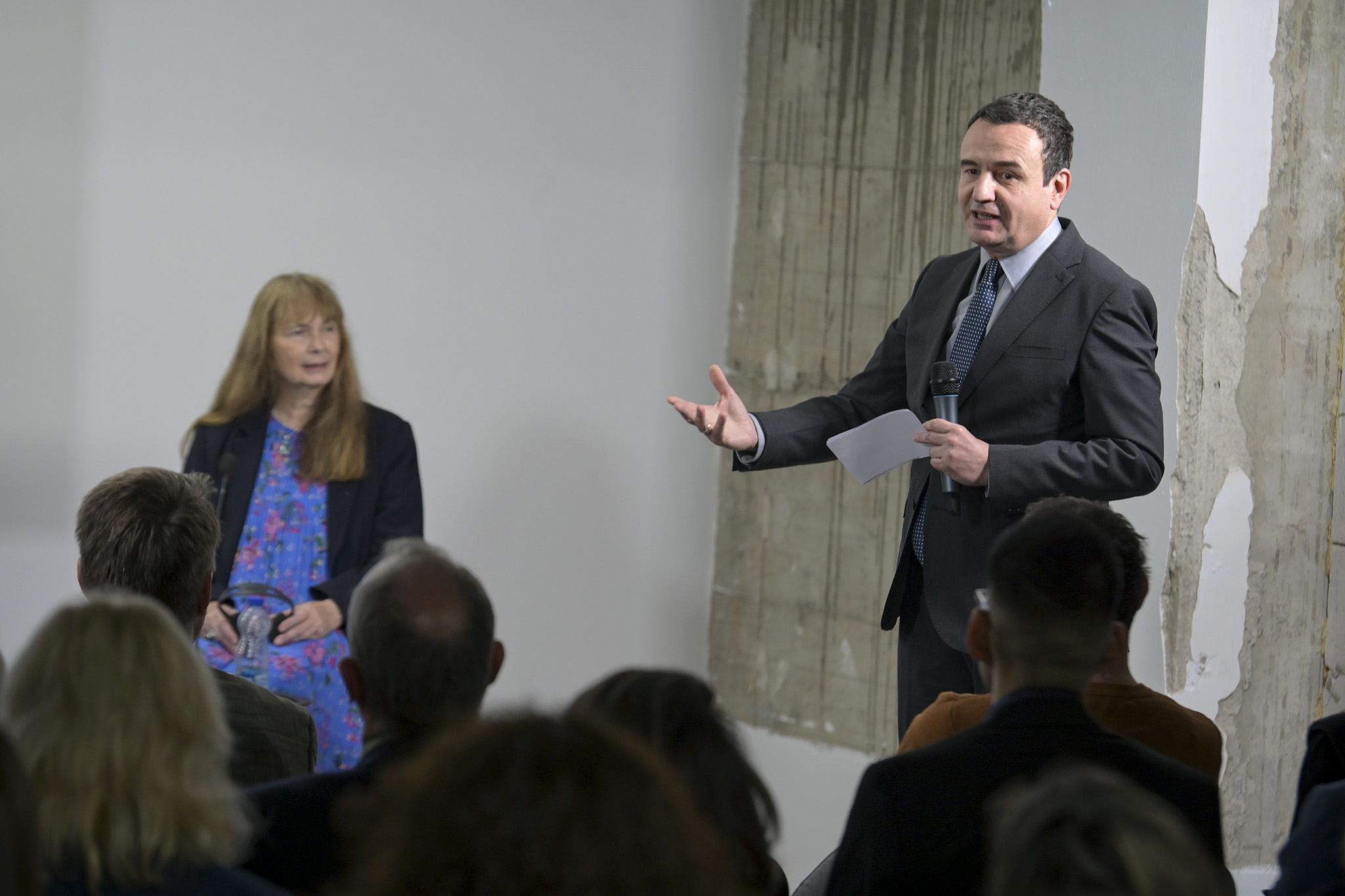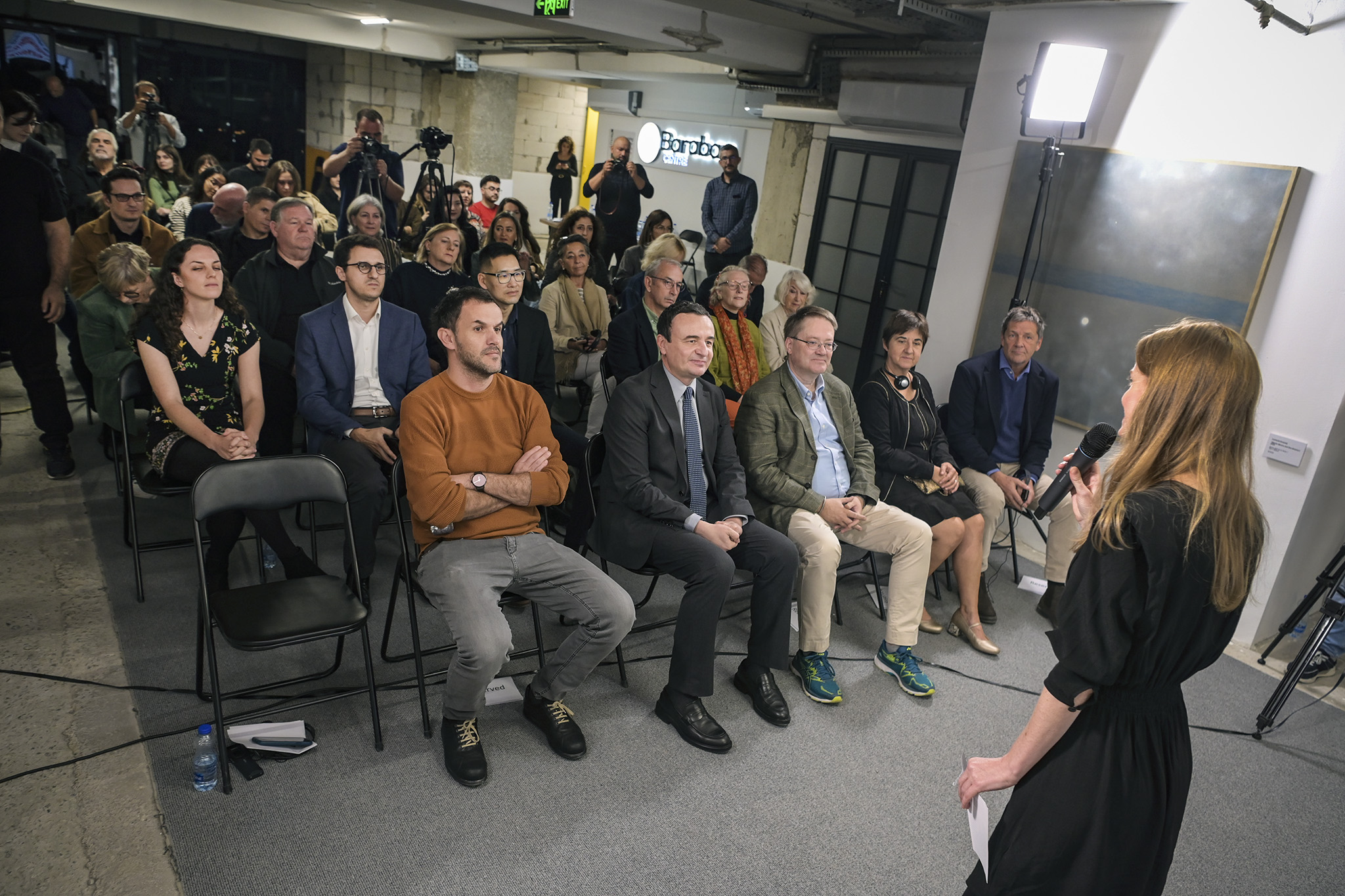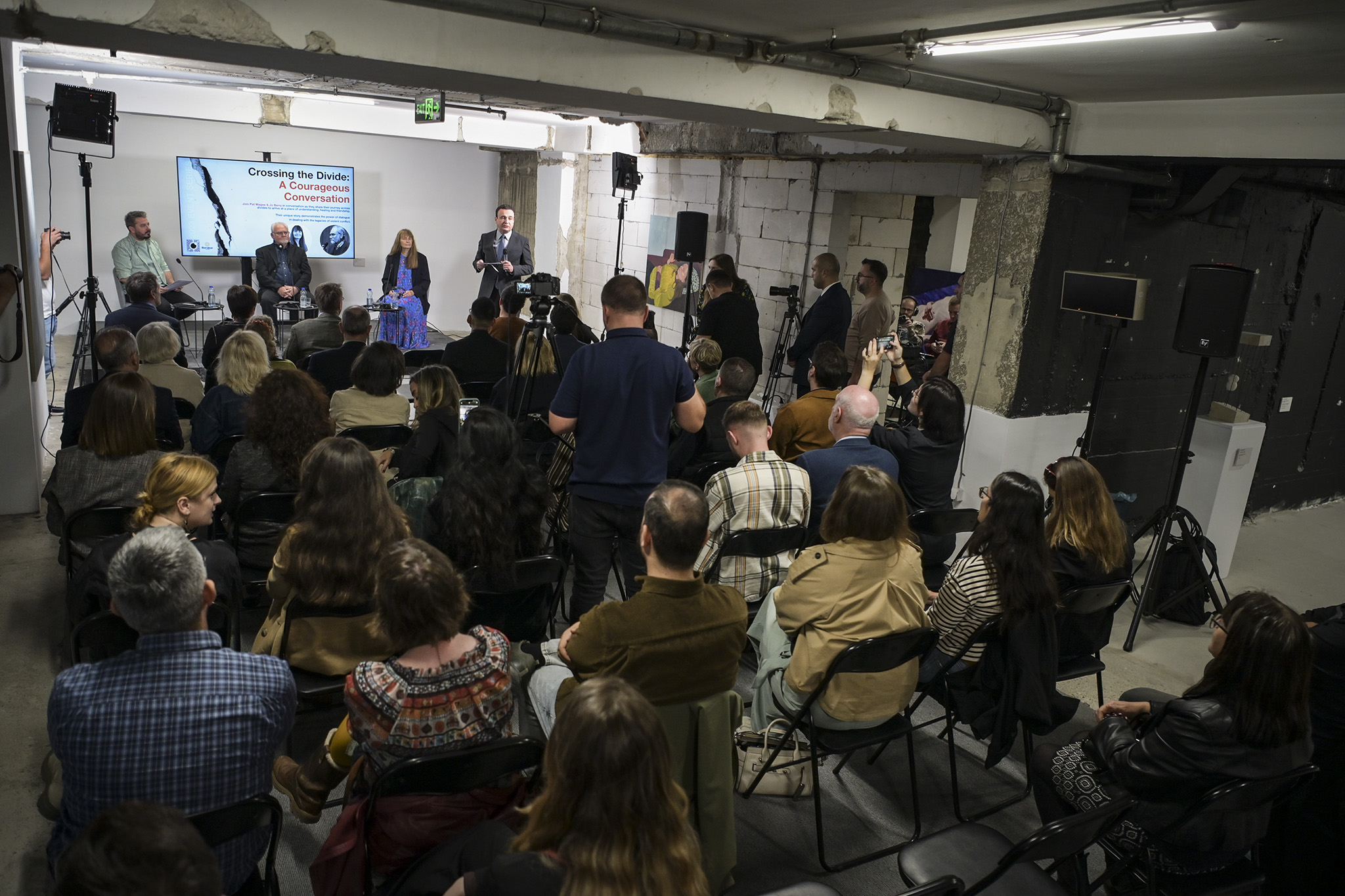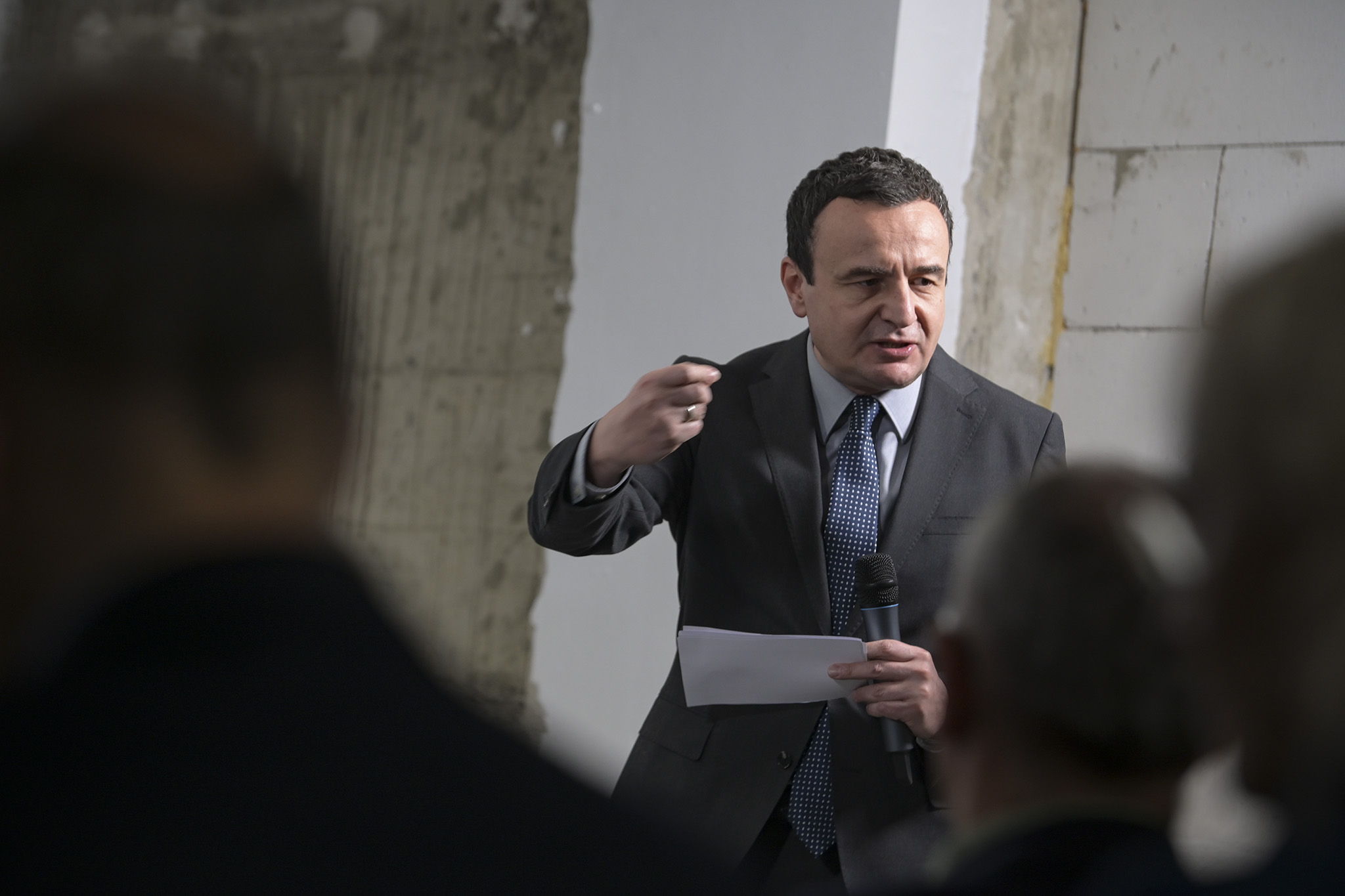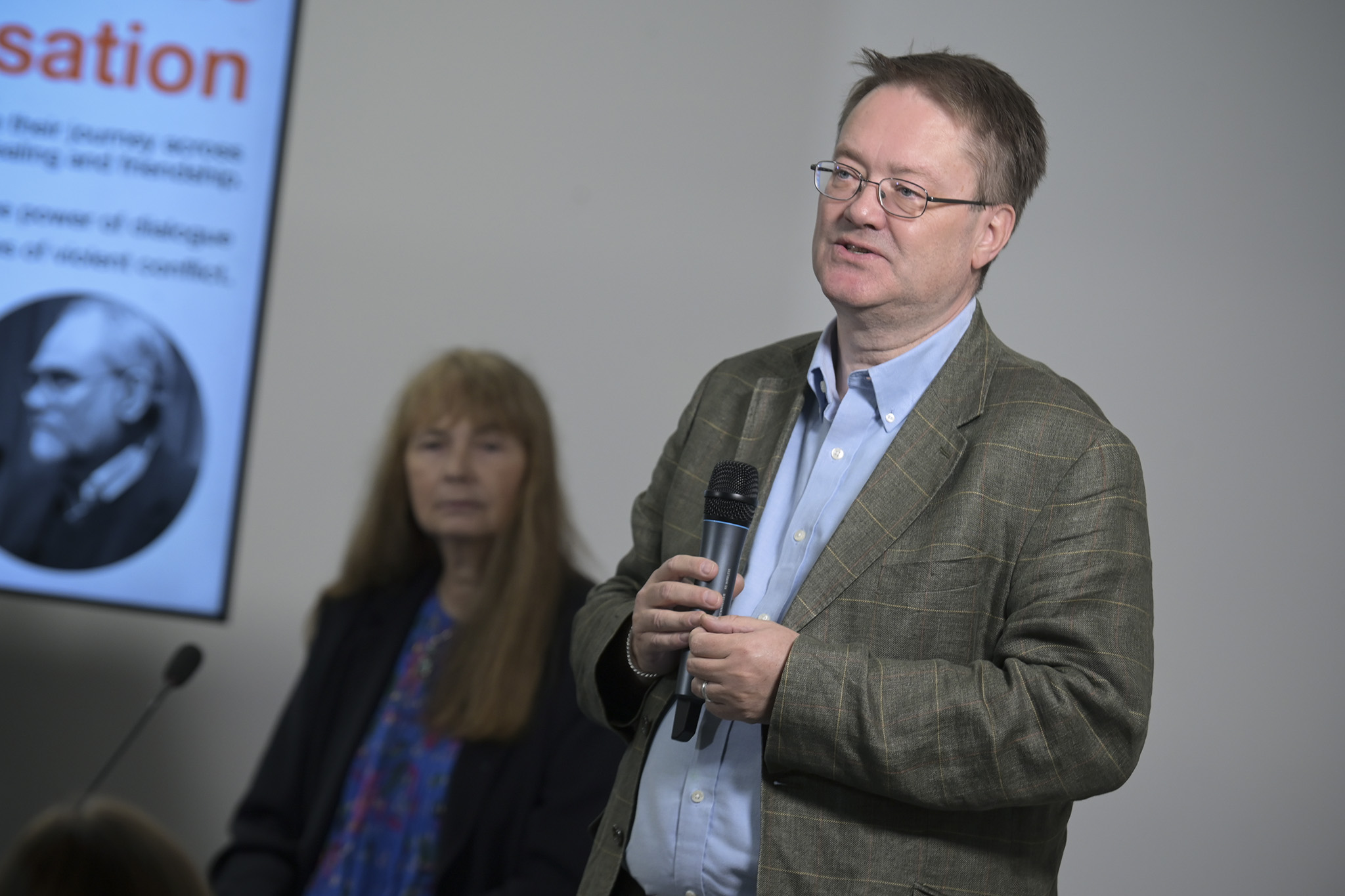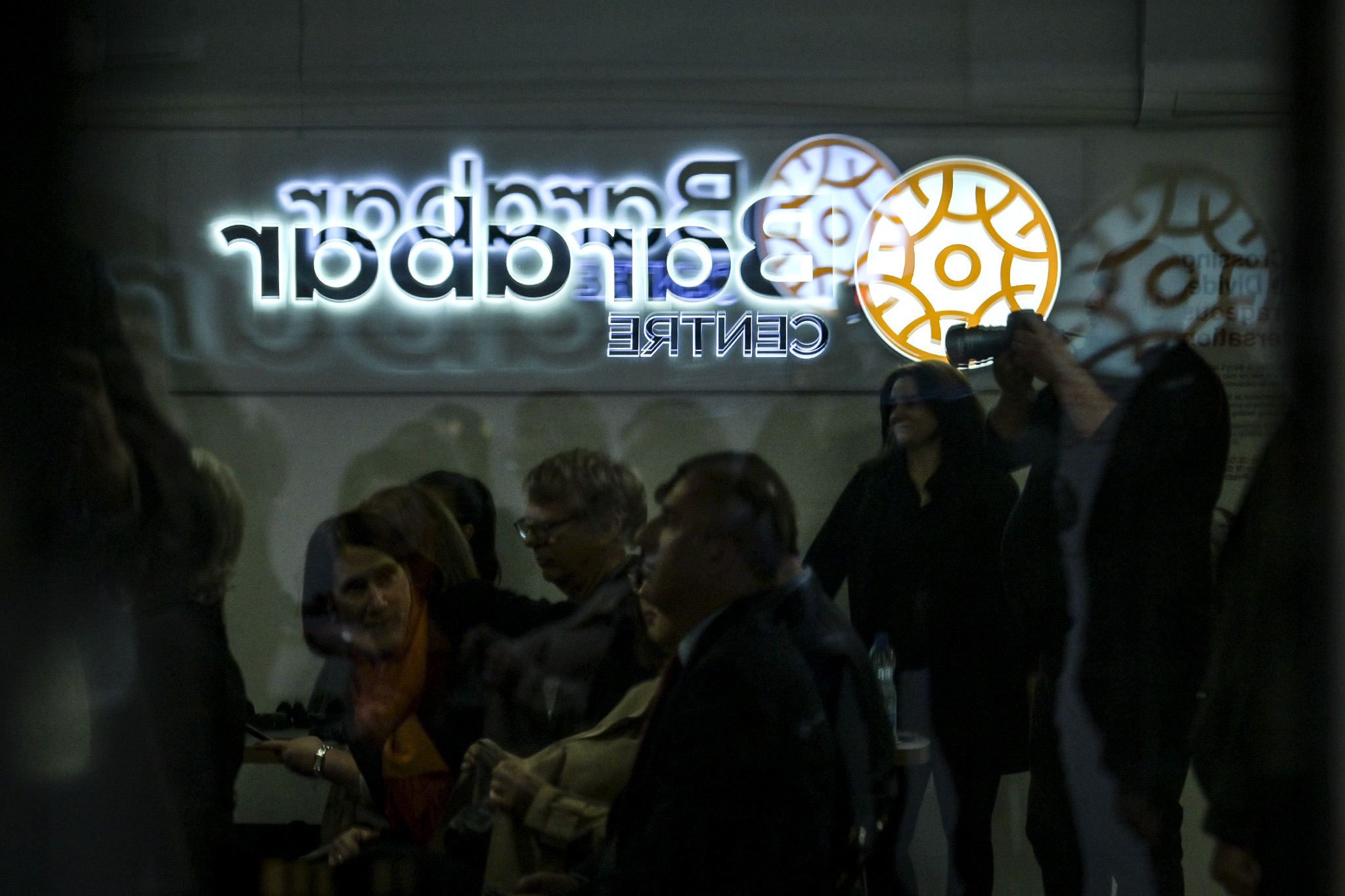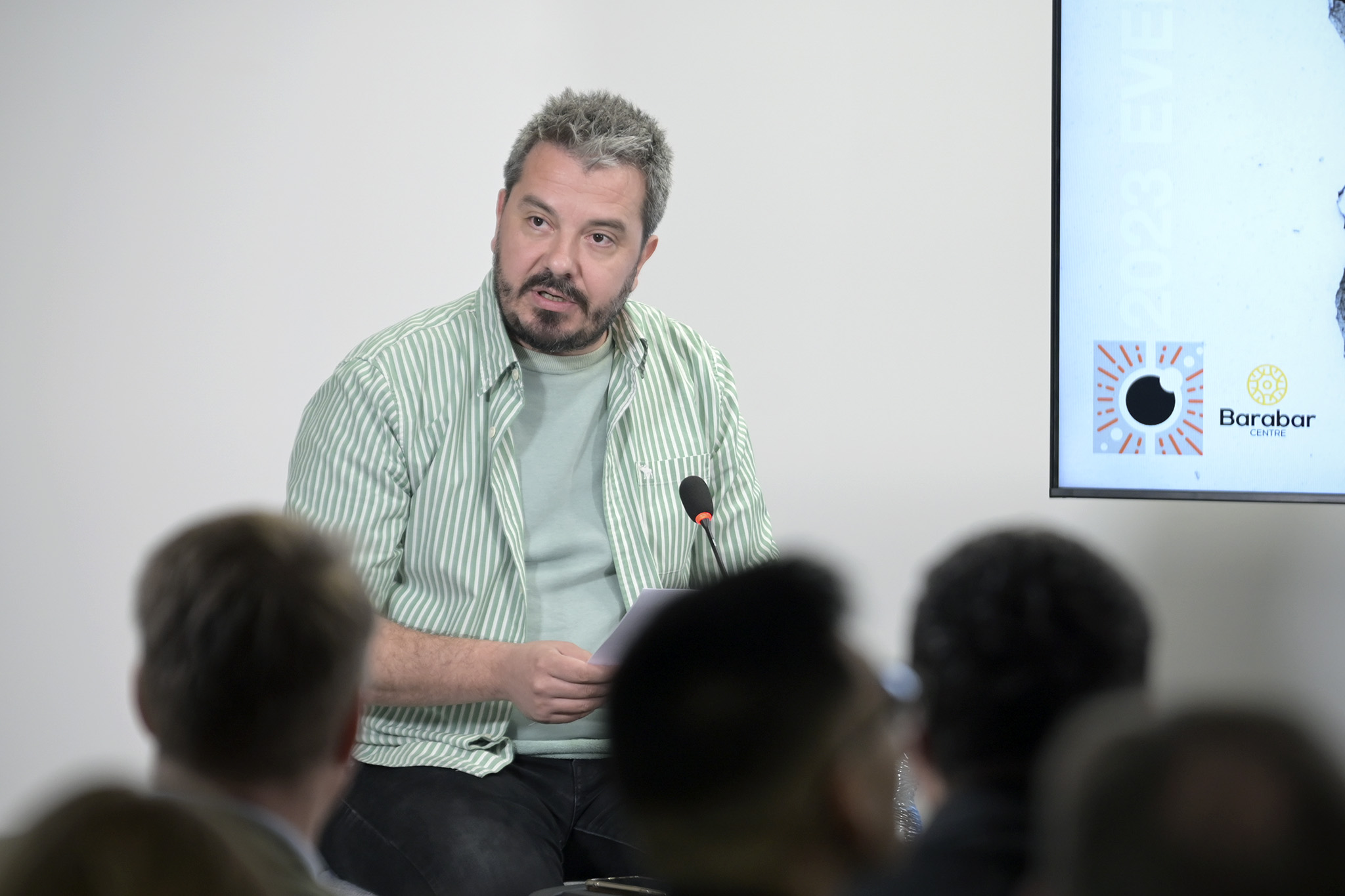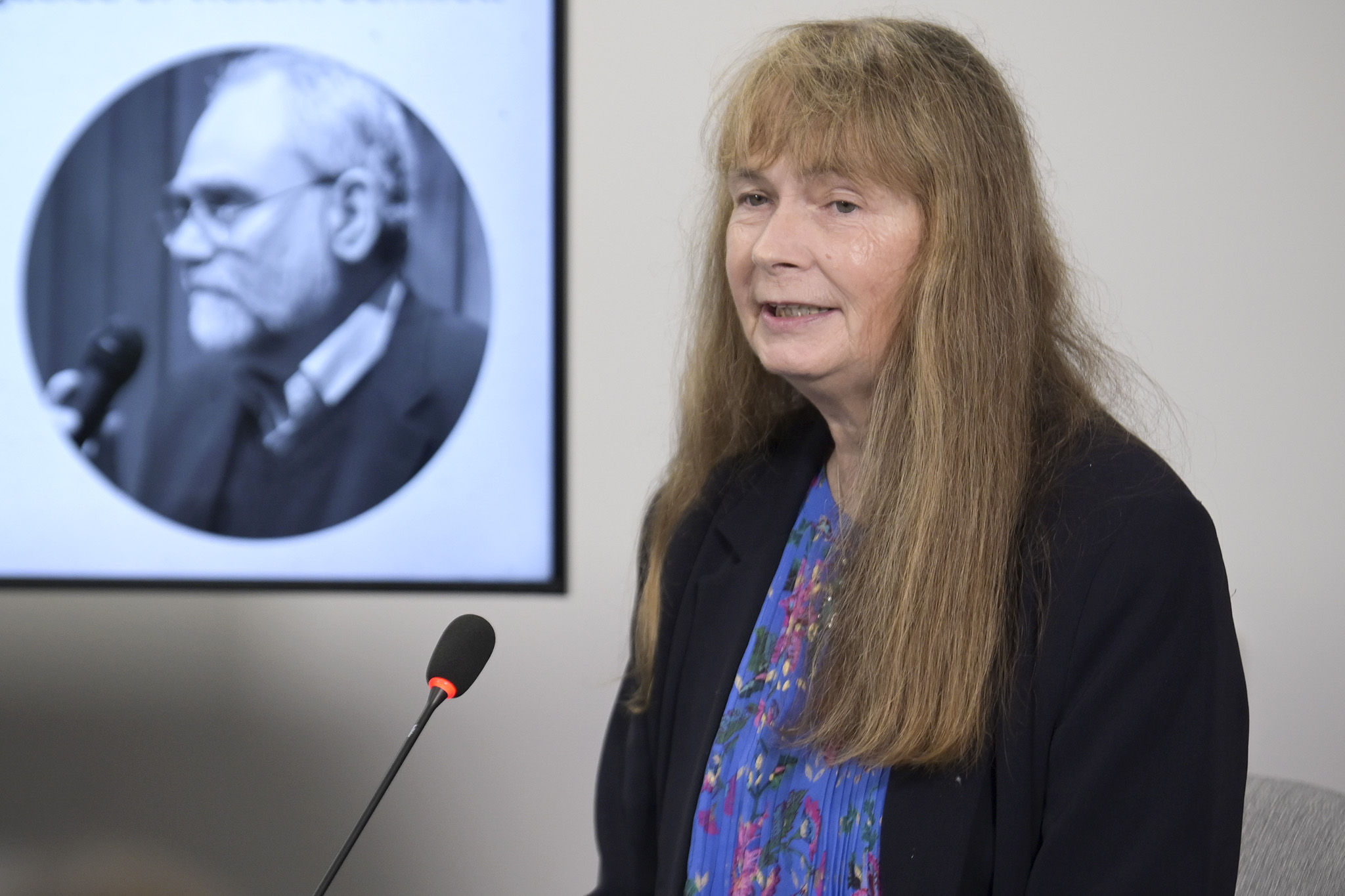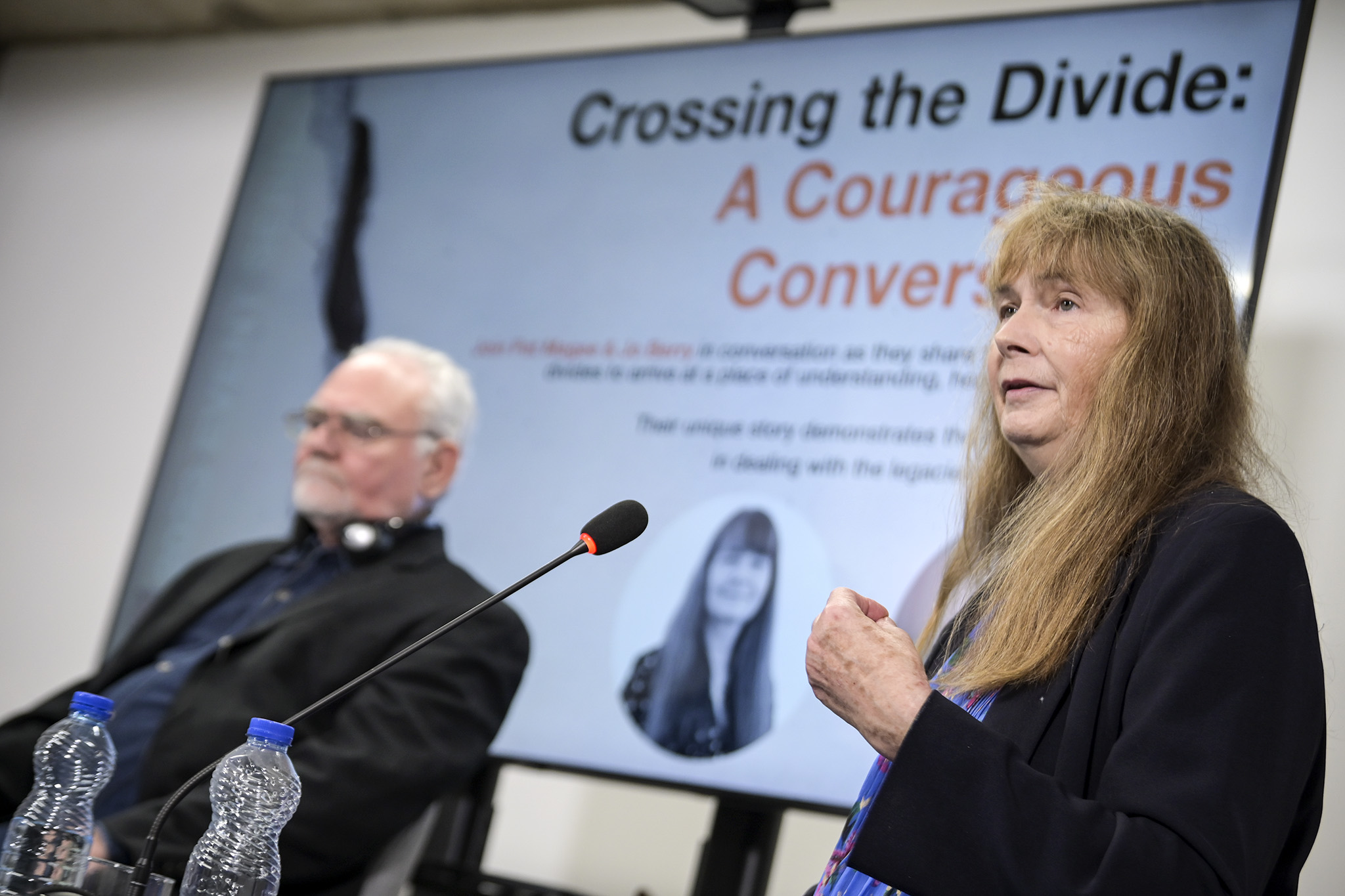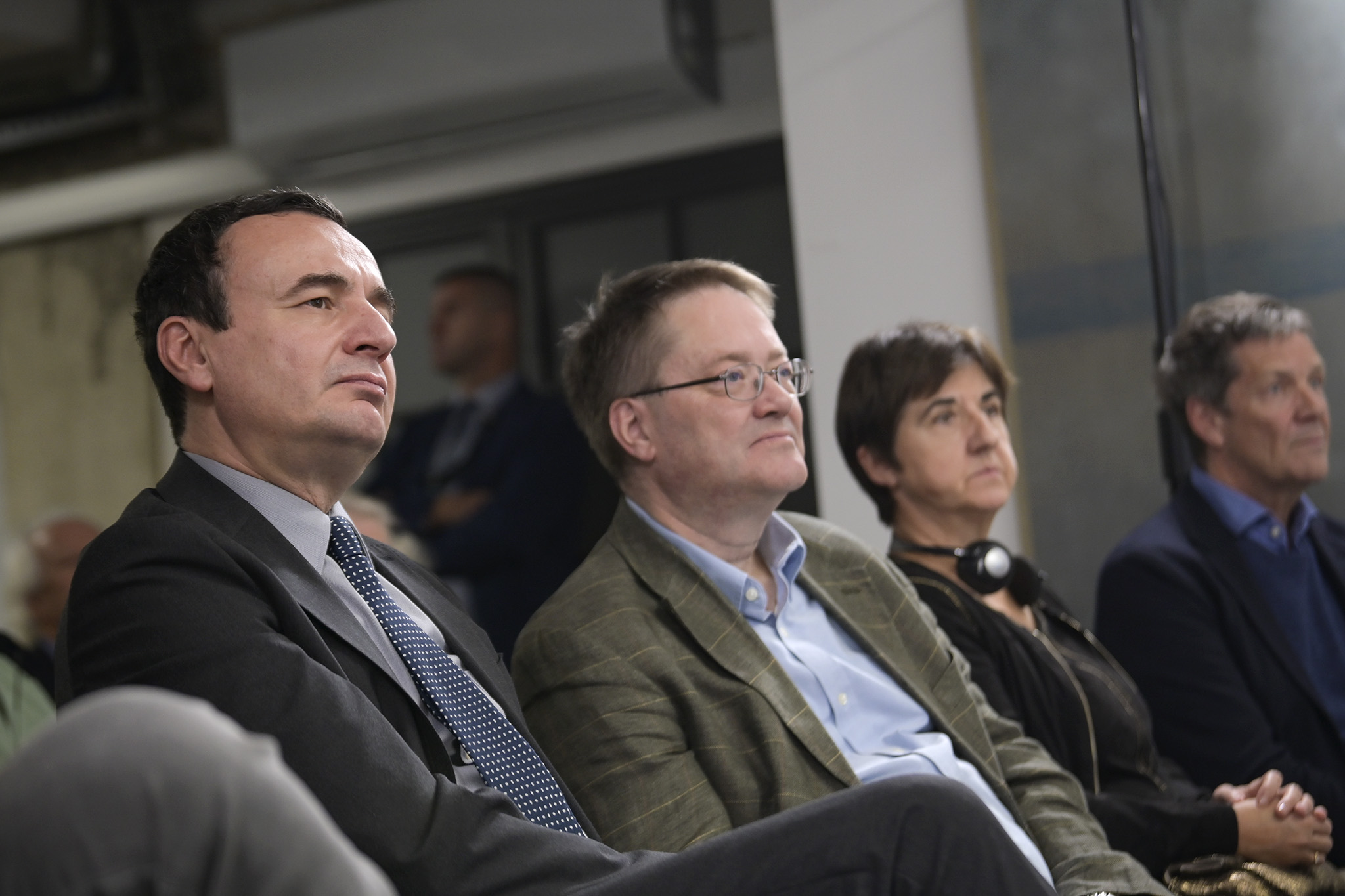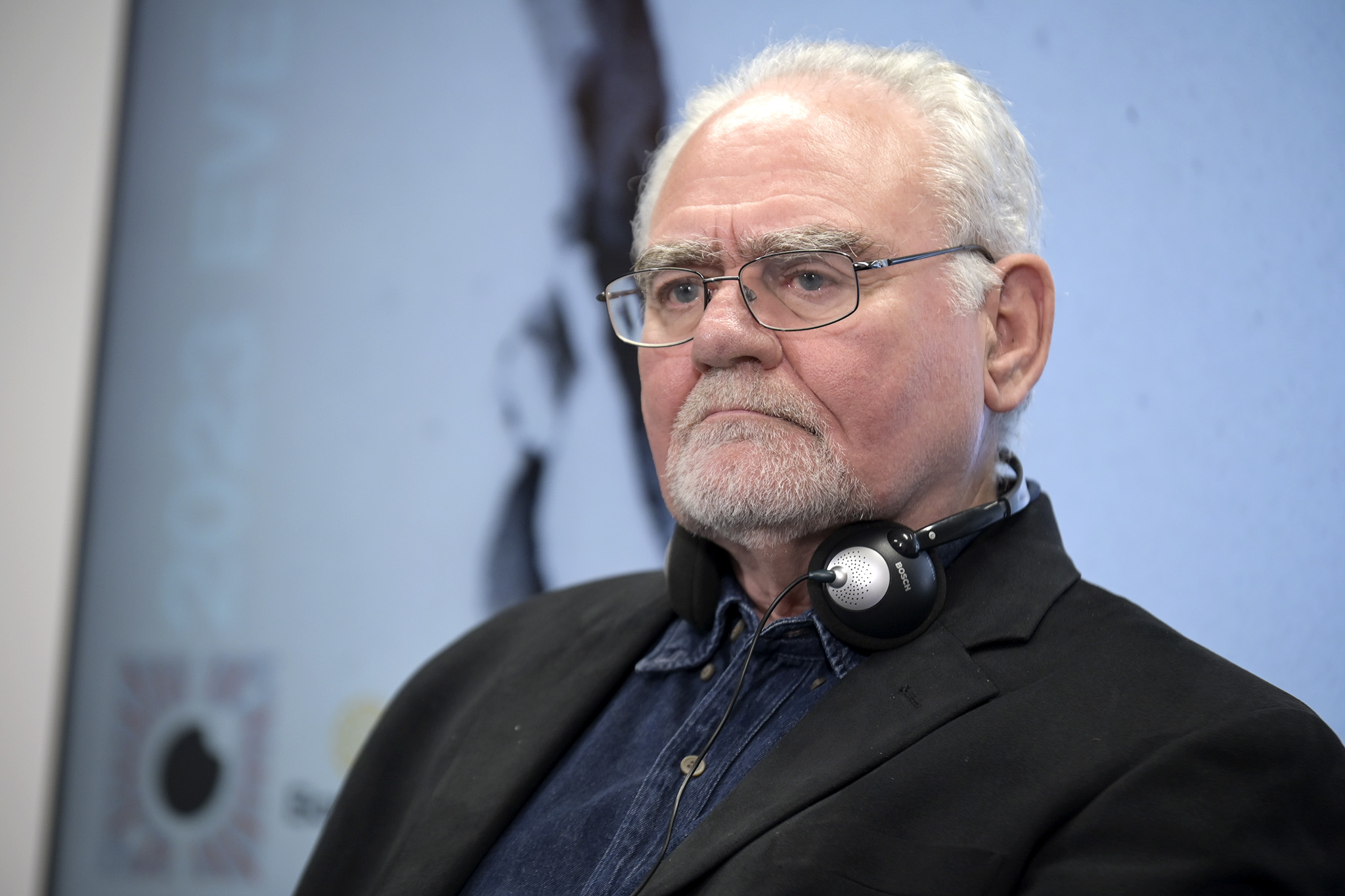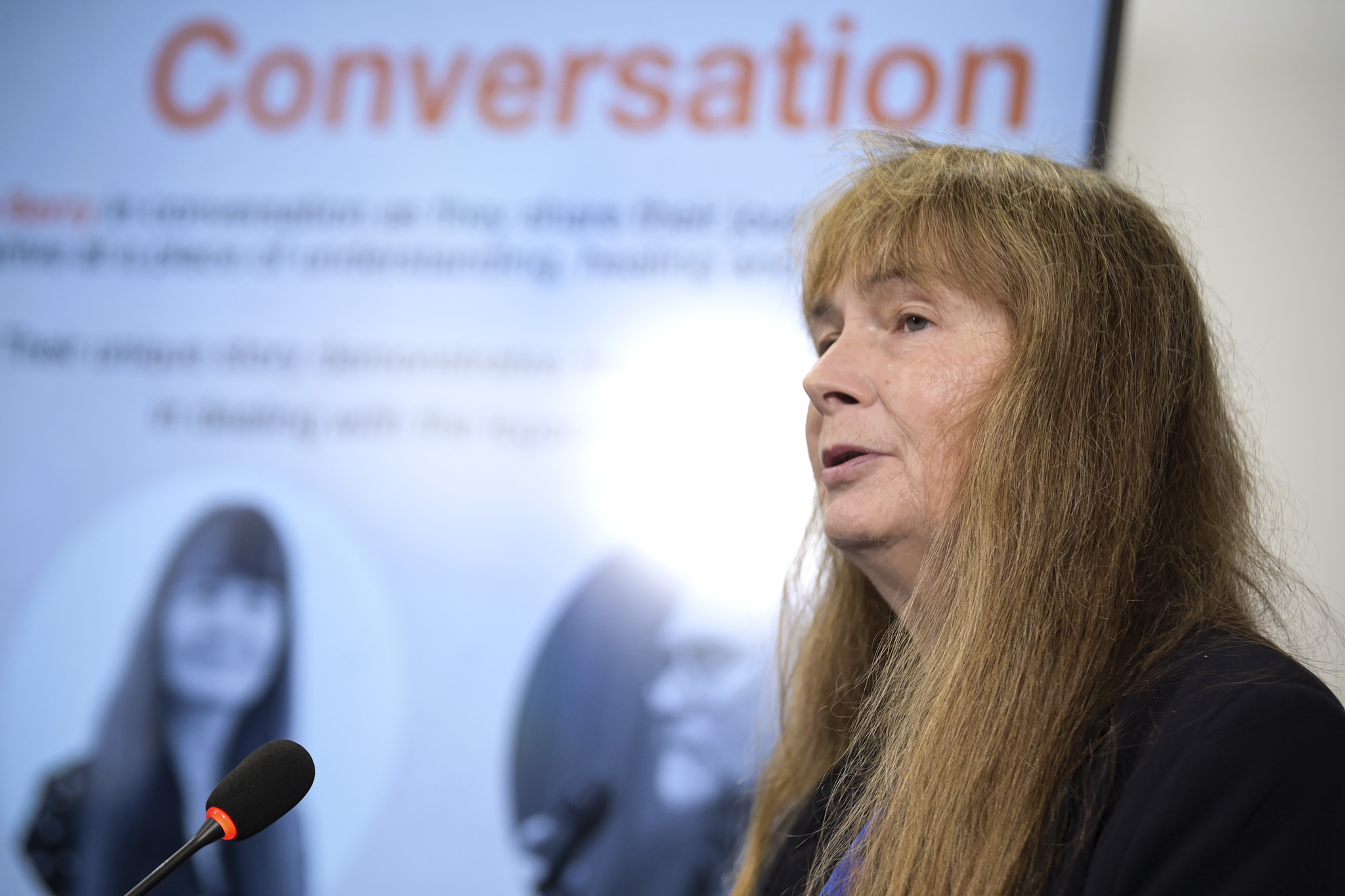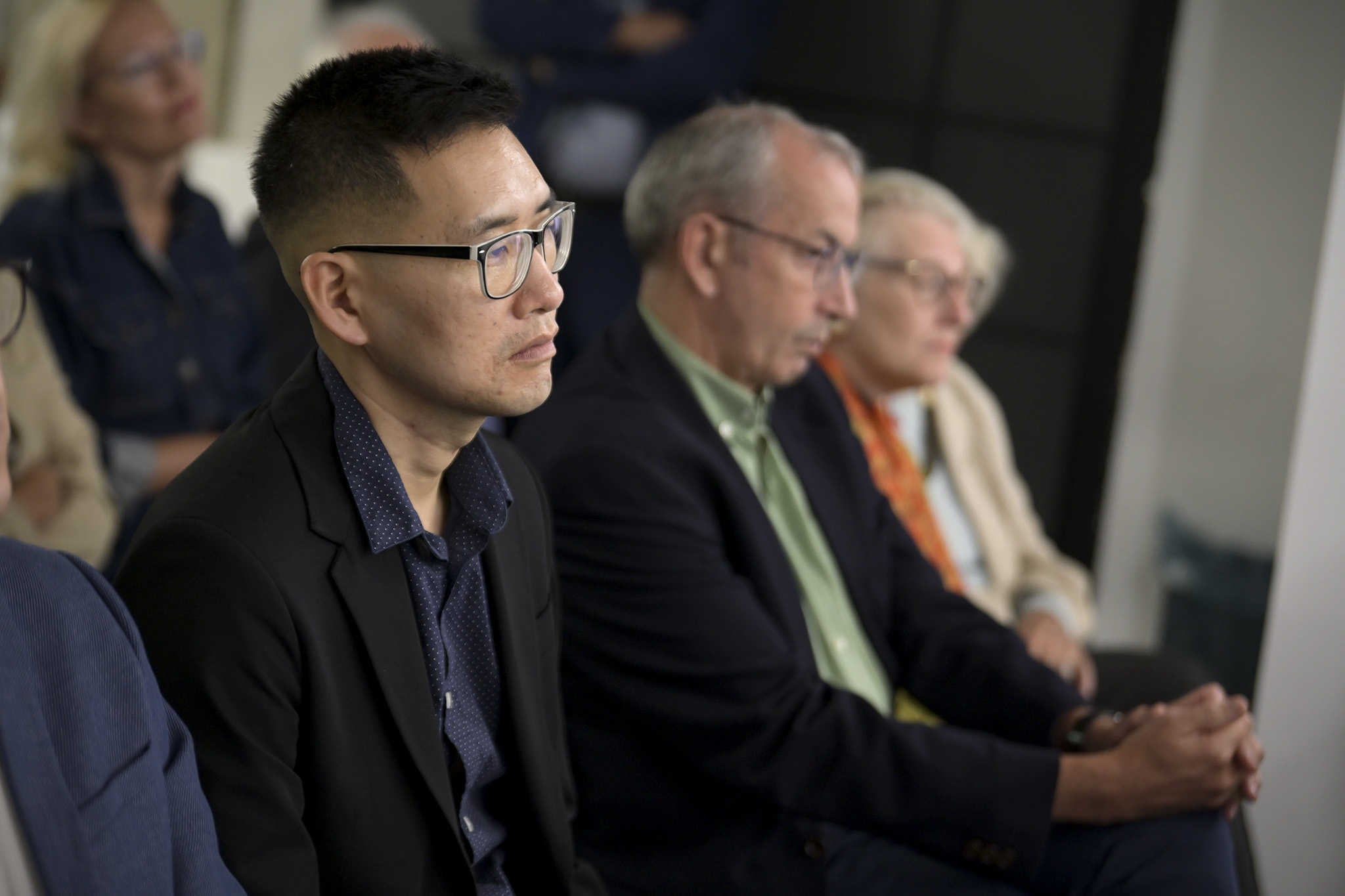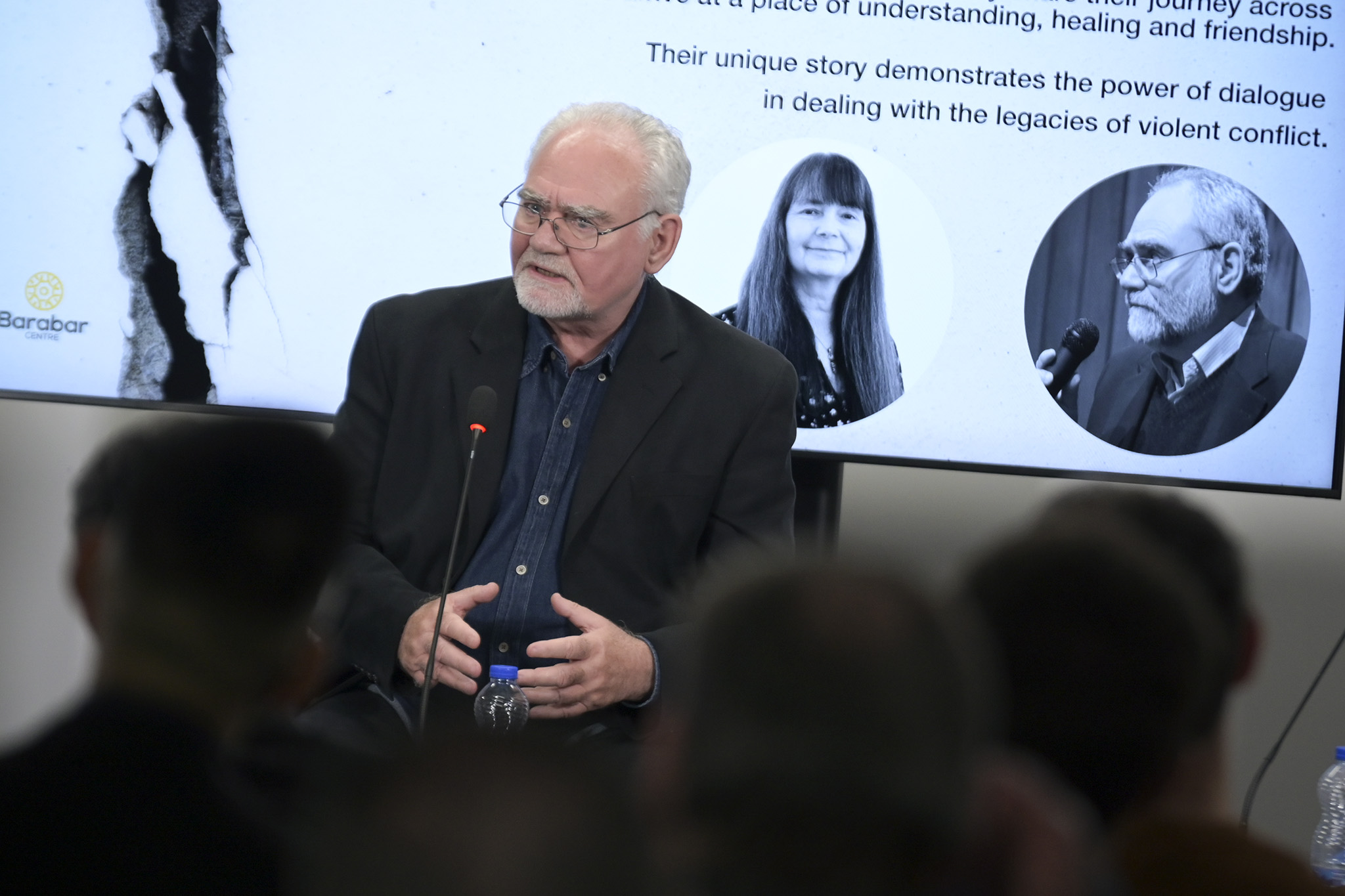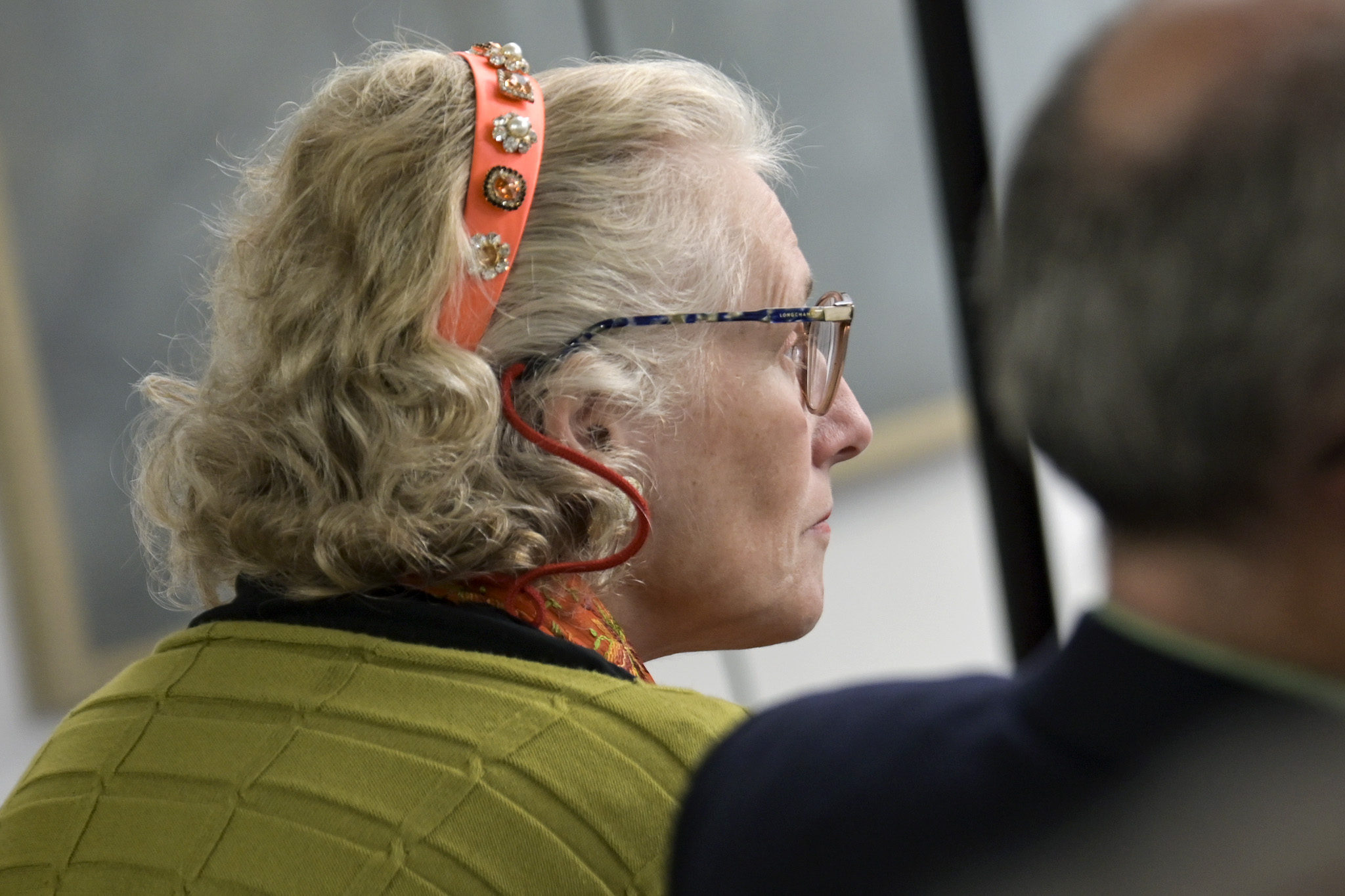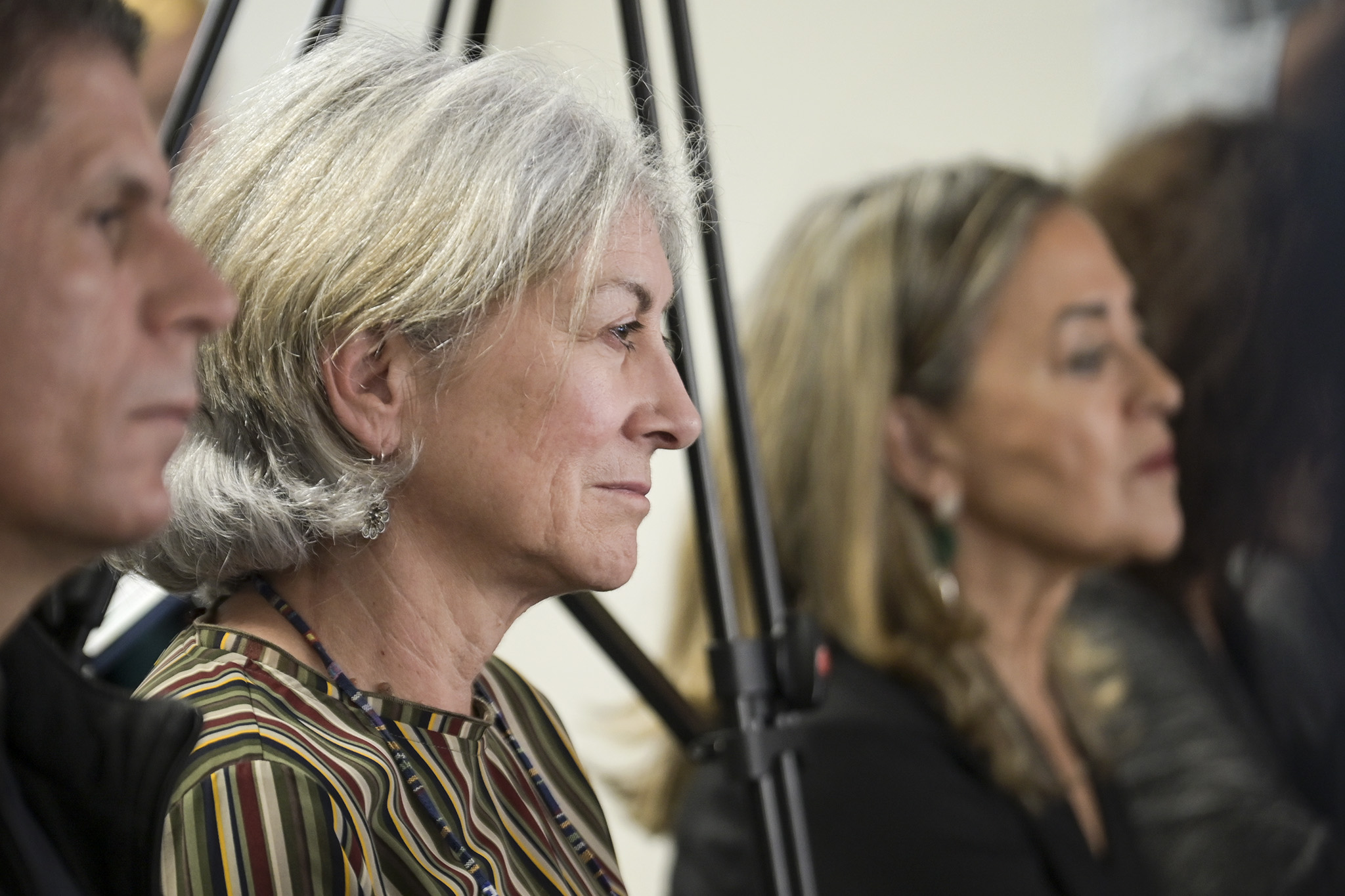Prishtina, 28 October, 2023
During the late afternoon of today, the Prime Minister of the Republic of Kosovo, Albin Kurti, was present as a guest of honor in the discussion organized by the organization from the United Kingdom, Plan for Peace and the Barabar center entitled ” Bridging the Divide: A Courageous Conversation’.
In front of the attendees, speakers and guests present, among whom was the ambassador of the United Kingdom in Kosovo, Nicholas Abbot, and Prime Minister Kurti spoke briefly about the importance of dealing with the past.
He said that confronting the past is necessary for a lasting peace and a successful future, being a healing process and a healthy mechanism for social and human progress. It is an individual right of the victim and the family and a collective right, but the obligation of the state and government to ensure that this right is enabled and realized.
This means that institutions have an obligation to document crimes through institutes and museums that serve as instruments of collective memory for future generations and that help comfort the victims by assuring them that their pain will not be forgotten, added the prime minister.
Regarding the responsibilities of the institutions, Prime Minister Kurti underlined that we are in the process of finalizing the National Strategy for Transitional Justice, we are establishing the Institute for Research and Documentation of Crimes Committed during the Kosovo War, while we have increased the budget of the Special Prosecutor’s office in the department of war crimes in order to increase human and professional capacities, and we have completed the legal framework that enables trials in absentia for war crimes in accordance with international standards, and we have doubled the number of war crimes investigators in the Crime Investigation Directorate of War within the Kosovo Police.
Two other issues that Prime Minister Kurti singled out in his speech and which he said are the focus of the Government, are sexual violence during the war and the forcibly disappeared.
This arrangement focused on the conversation between Jo Barry, who lost her father to an IRA bomb in 1984, and Pat Magee, the person responsible for the death of Jo Barry’s father. Both shared their stories and perspectives on the role dialogue can play in healing and dealing with the past. For 20 years now, Jo Barry and Pat Magee continue to meet and together have spoken on over 300 different occasions and on numerous platforms around the world.
Prime Minister Kurti’s complete speech:
Dear Jo Barry and Pat Magee,
Dear friends,
Dear Korab and Kushtrim,
It’s a great honor and privilege to be here tonight with you.
Dealing with the past is indispensable for sustainable peace and for a prosperous future. We considered that dealing with the past is a healing process and a healthy mechanism for progress, for social and human progress.
Dealing with the past should not be only about the crime. It should be mostly about the harm caused, therefore addressing harm and repairing it to the possible extent.
It is an individual right and a part of the victim and her or his family, but also dealing with the past is a collective right on the part of the society.
Likewise it is an obligation on the part of the state and government, to ensure that such rights are enabled and actualized. It means that institutions have an obligation to document crimes (work crimes institute, work crimes museums), and these institutions serve as societies collective memories especially for future generations.
Collective memory institutions can help comfort the victims, reassuring them their sufferings won’t be forgotten and this can open the way to personal reconciliation with the past.
In Kosova, we are finalizing the National Strategy for Transitional Justice. We are establishing the Institute for Crimes Committed During the War. Remain committed to truth and strengthening of the judiciary and especially to increase priority to addressing war crimes.
We have raised the budget for the Special Prosecutor’s Office, in the department for war crimes, in order to increase human and professional capacities.
Given our northern neighbour, Serbia’s categorical refusal to cooperate with our justice system in criminal matters — including the refusal to hand over war criminals — we have updated our law to allow accused to be tried in absentia for war crimes, in accordance with international standards.
We have raised the police sector to the level of the War Crimes Investigation Directorate and doubled the number of war crimes investigators.
Two topics which are at our focus are sexual violence during the war and the forcibly disappeared. We have around 20 thousands women and men who have been raped during the war, and the number of applications received by the government commission for recognition and verification of the status of victims of sexual violence, is less than 2 thousands. Therefore, the vast majority of victims either are afraid of stigmatization, and/or have this shame, embarrassment that prevents them from coming out. And here we are trying our best, and our best is not enough.
The Government has declared April 14 the National Memorial Day of survivors of sexual violence during the last war in Kosova.
Regarding the Enforced disappearances, there are still 1617 disappeared people and 950 have been exhumed in five different mass graves in Serbia, but in the territory of Serbia there is no case or location addressed in terms of evaluation of excavation as of May 2022. However, in the period of this year, January-September, within the territory of Kosova, there were carried out in ten locations these excavations of the cases of forcibly disappeared during the war, and in five locations have resulted in findings and exhumation of at least six victims of the war and we are currently awaiting for DNA results.
In my adolescence I got to know about Ireland, Republic of Ireland, Northern Ireland and all the troubles and, not from news because as young people we did not watch much news back then, but through Irish and British pop and rock music but also through movies. So, it was very close to our heart and mind because we’re under occupation and apartheid ourselves.
So looking at another situation with so many similarities was of great help for us. I don’t know many of my fellow citizens who have been to Belfast, but we got to know Belfast and Northern Ireland from movies of Bill Jordan and Jim Sheridan, to Ken Loach and Kenneth Branagh nowadays. But at the same time from this literary movement and cultural response called field day. So all these helped us a great deal to create these connections and to learn from them.
It is such an honor to be here with both of you and of course, I was asked to talk otherwise I came here to listen.
Last modified: October 30, 2023
